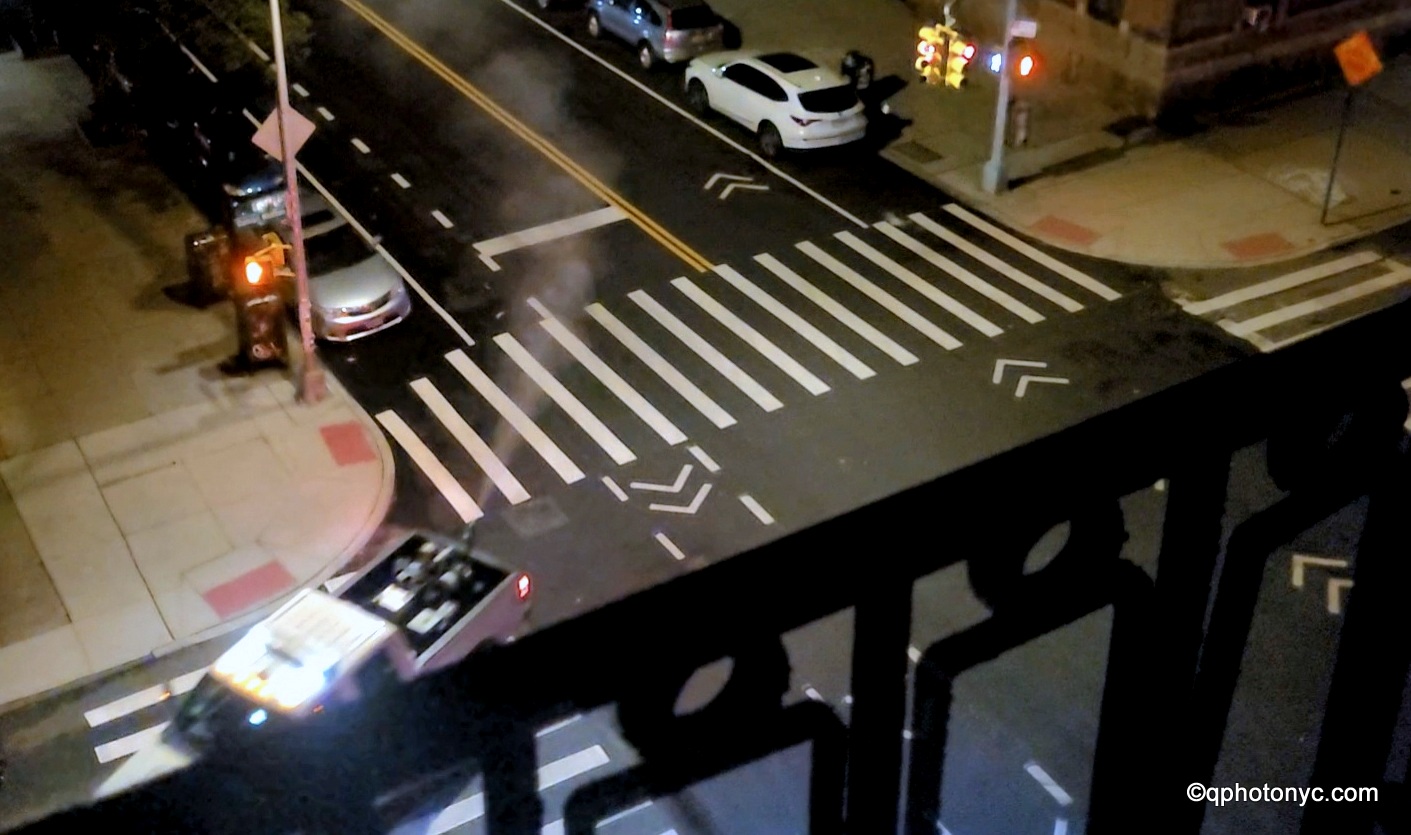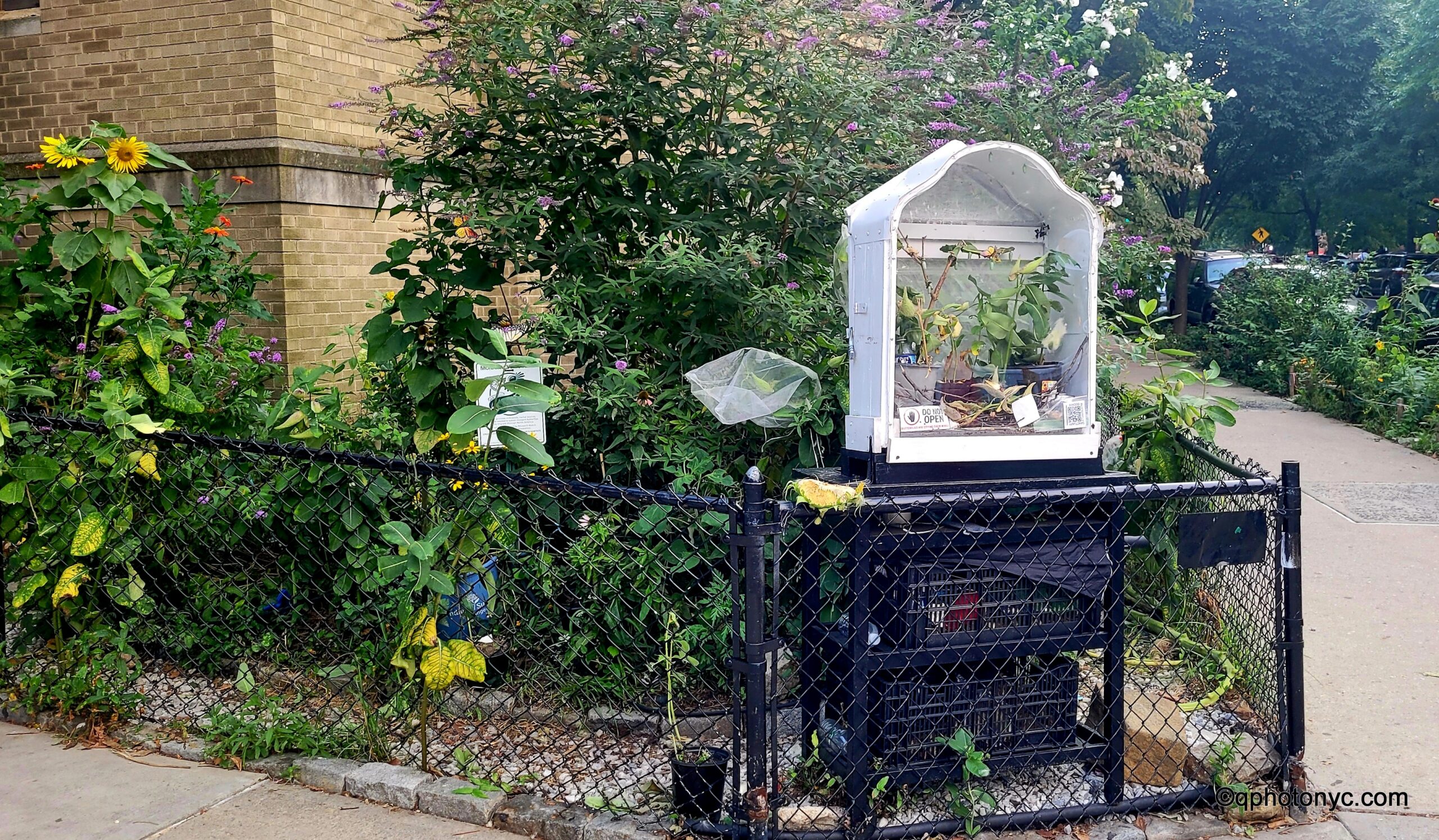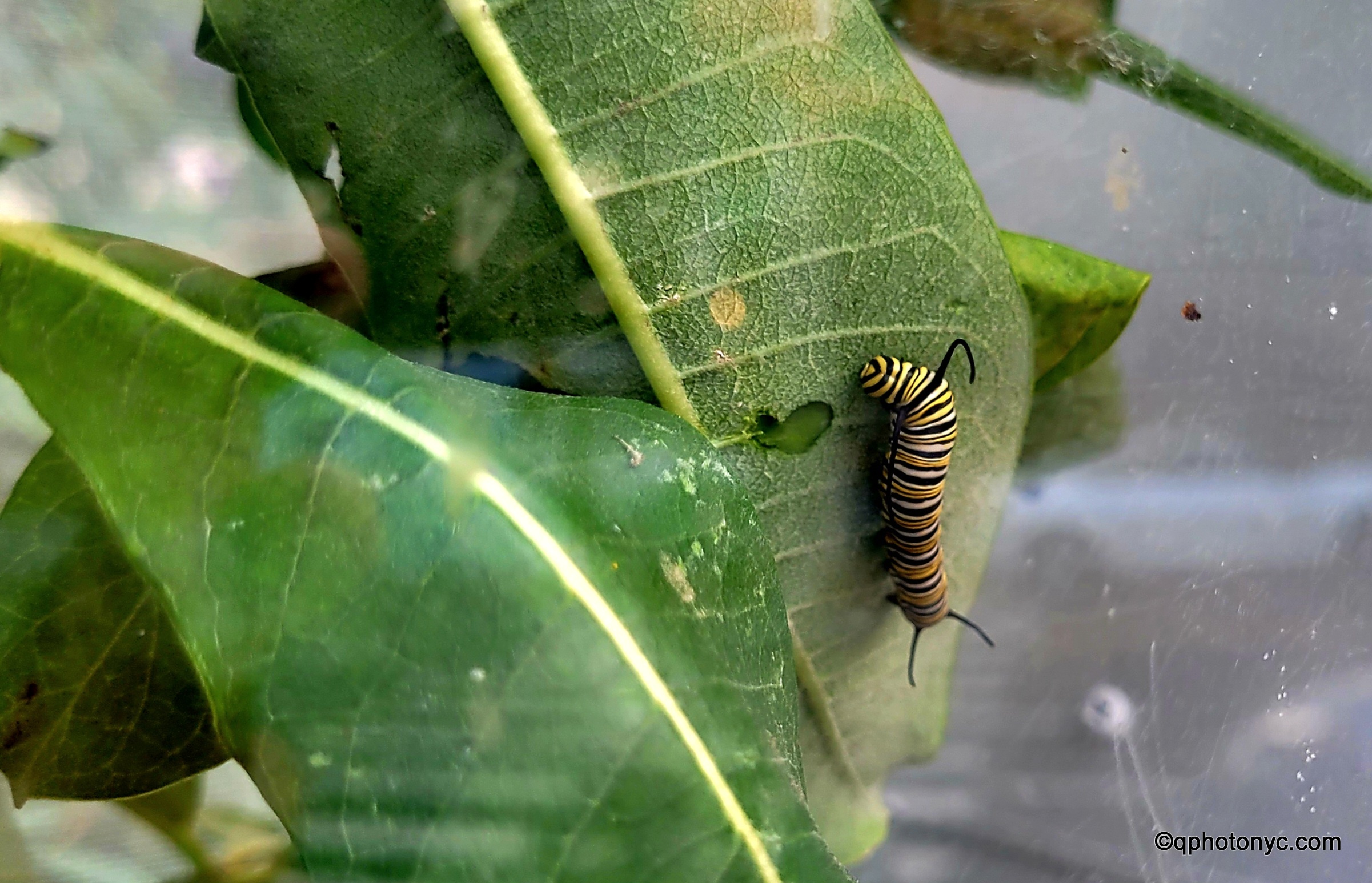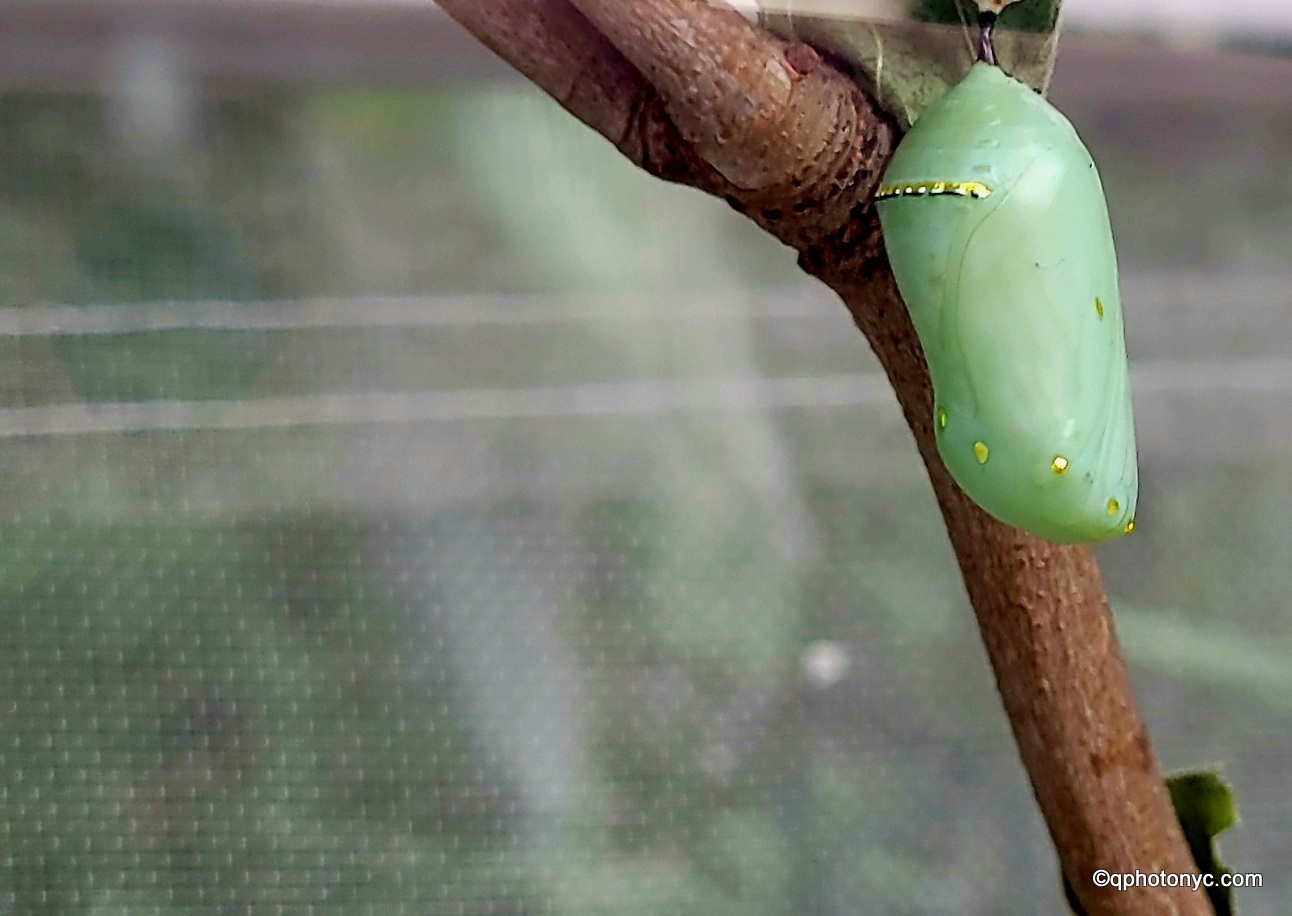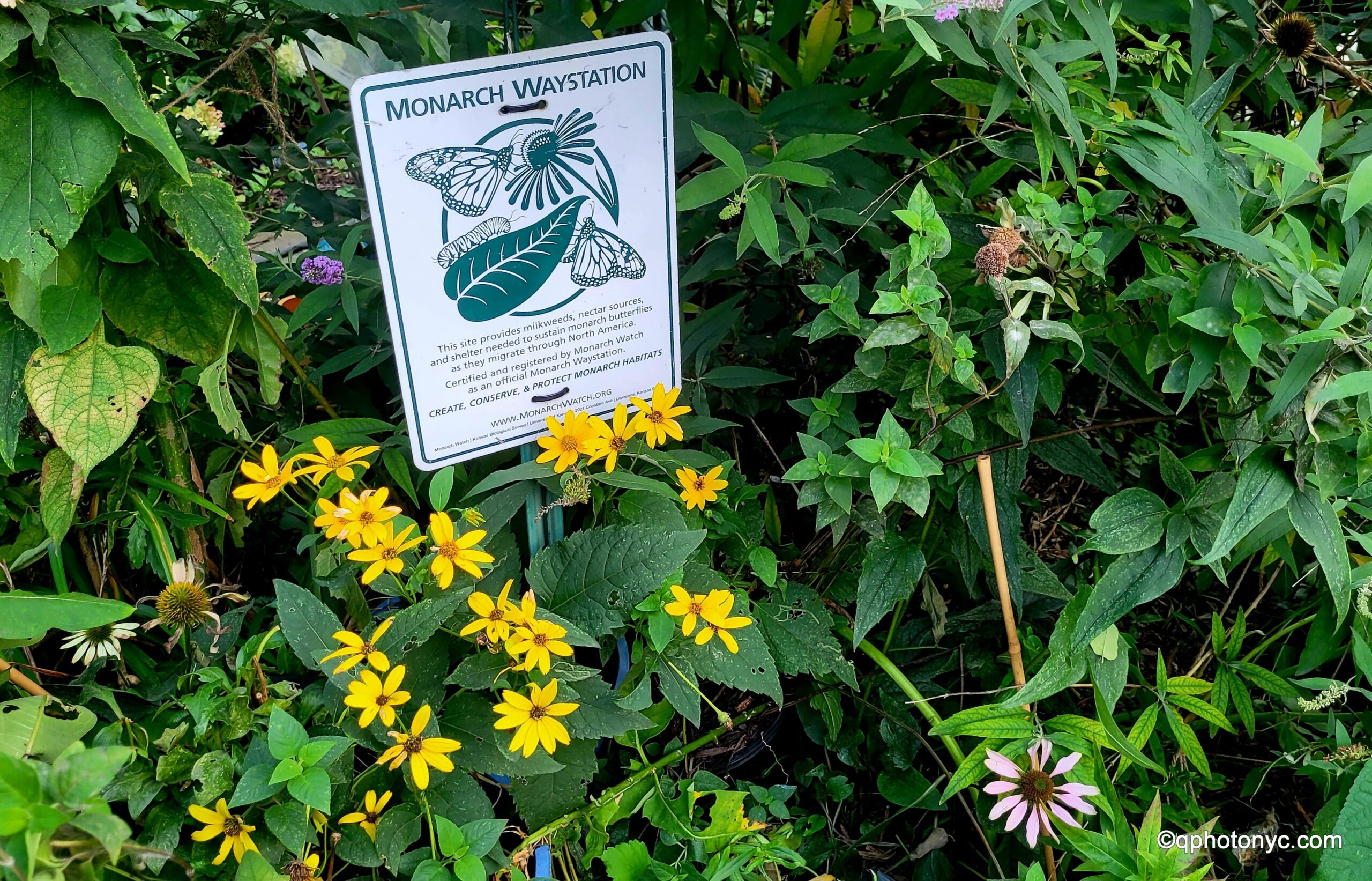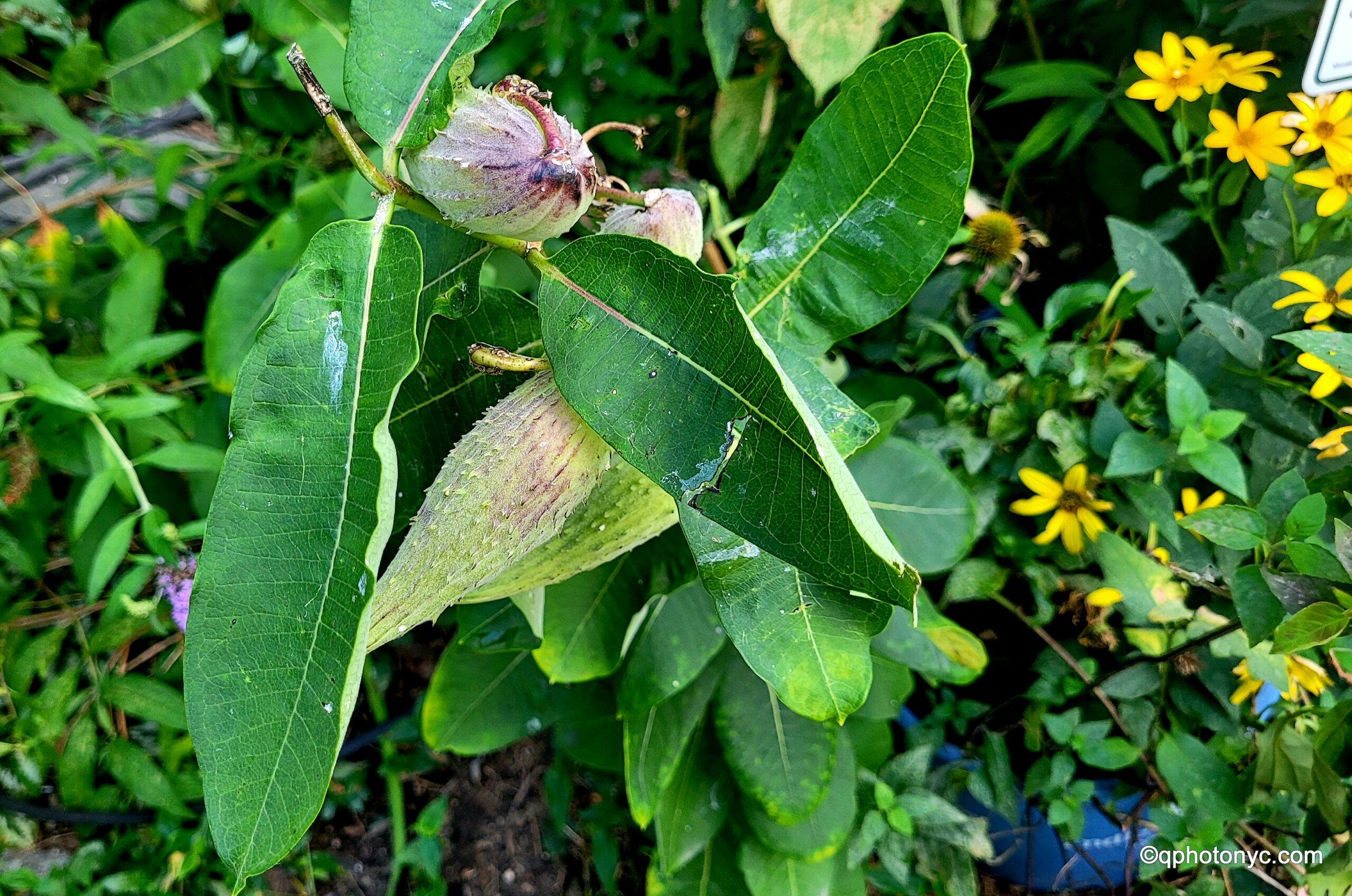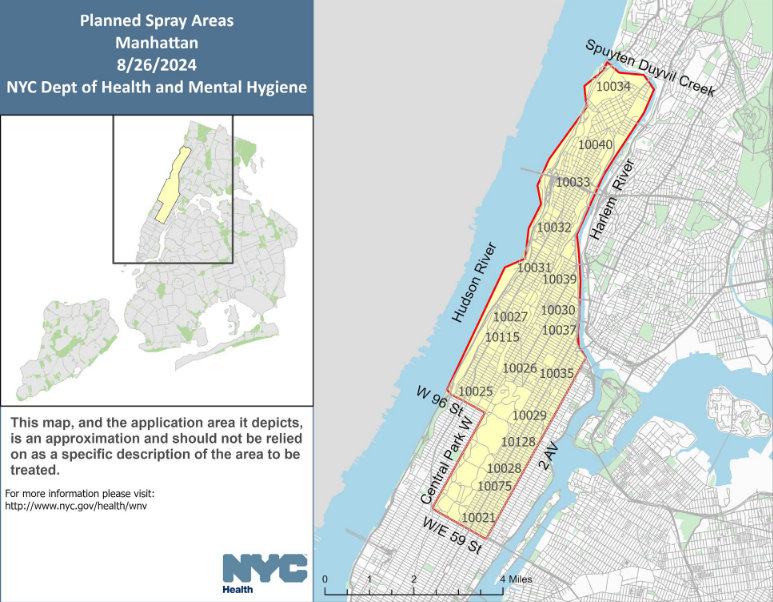August 27, 2024
The City’s Department of Health sprayed mosquito pesticide early this morning in parts of Manhattan including Inwood. The concern is an uptick in West Nile Virus, a disease transmitted by the pesky insects. Heavy rains recently have created ideal conditions for the insects to multiply, namely plenty of standing water in puddles, gutters and miscellaneous containers.
A spray truck driving around the neighborhood around 1 AM this morning blared a recorded announcement about West Nile Virus over the loud drone-like sound the spray apparatus itself made.
The Gazette spoke with a person tending the Monarch Butterfly Sanctuary on Isham Street yesterday who identified himself as Keith. He said he was taking precautions ahead of the planned spray event, despite an assurance that the trucks would detour around the block, by installing protective bags for the Monarch caterpillars in case they didn’t. The sanctuary is a way station for these migratory butterflies heading South for Winter.
A truck drove by West 207th Street with a spray nozzle pointed skyward trailing a stream of white vapor. The vapor drifted slowly across the sidewalk before settling on the exterior of a nearby apartment building. The City also sprayed Parts of Carnegie Hill, Central Park, East Harlem, Fort George, Hamilton Heights, Harlem, Inwood, Lenox Hill, Lincoln Square, Manhattan Village, Manhattanville, Morningside Heights, Sherman Creek, Sugar Hill, Upper East Side, Upper West Side, Washington Heights, and Yorkville.
Parts of Brooklyn are scheduled to be sprayed tomorrow, August 28.
From the DOH website:
To reduce mosquito activity and the risk of West Nile virus, the Health
Department will conduct an adulticide treatment in Manhattan and Brooklyn.
Trucks will spray pesticides in sections of Manhattan beginning on Monday, August 26, 2024,
between the hours of 8:30 PM and 6:00 AM the following morning and in Brooklyn
on Wednesday, August 28, 2024 between the hours of 8:30 PM and 6:00 AM the following
morning. In case of bad weather, application will be delayed until Tuesday, August 27, 2024,
and Thursday, August 29, 2024, respectively, between the hours of 8:30 P.M. and 6:00 A.M.
the following morning.
The Health Department will use very low concentrations of Anvil® 10+10, Duet® or MERUS®
3. The risks of pesticides applied by the Health Department for mosquito control are low to
people and pets. Some people who are sensitive to spray ingredients may experience short-term
eye or throat irritation, or a rash. People with respiratory conditions may also be affected.
To stay safe during spraying:
• Stay indoors, whenever possible.
• Air conditioners can remain on. While unnecessary, you may wish to close air
conditioner vents, or choose the recirculate function.
After spraying:
• Wash skin and clothing exposed to pesticides with soap and water.
• Always wash fruits and vegetables with water.
The most effective way to control mosquitoes is to eliminate any standing water. New Yorkers
are also encouraged to mosquito-proof their homes and take precautions when spending time
outdoors.
Reducing exposure to mosquitoes
• Use an approved insect repellent containing DEET, picaridin, oil of lemon eucalyptus
(not for children under 3), or products that contain the active ingredient IR3535.
• Make sure windows have screens. Repair or replace screens that have tears or holes.
• Eliminate any standing water from your property and dispose of containers that can
collect water. Standing water is a violation of the New York City Health Code

